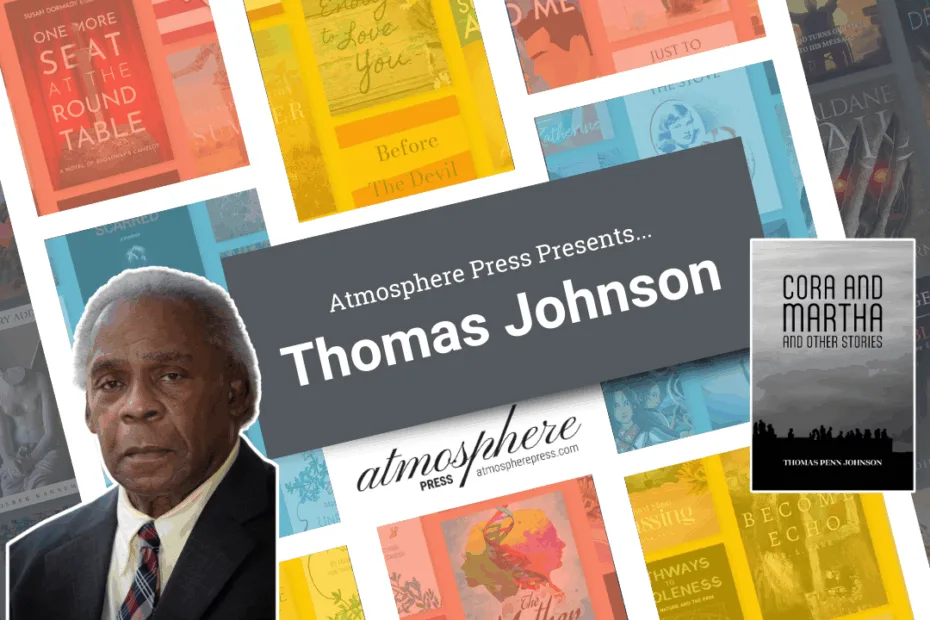An Interview with Thomas Johnson

Thomas Penn Johnson was born on August 22, 1943, in Greensboro, North Carolina. He holds a BA in Classical Studies (1966) from then-Concordia Senior College in Fort Wayne, Indiana; an MA in English from UNC-G (1968); an ABD in English (1973) at Syracuse University; and an MA in history from Wake Forest University (1982). In 2009, he retired from then-Edison State College in Fort Myers, Florida, after serving for twenty-six years as an instructor of English and humanities.
Tell us the story of your book’s title. Was it easy to find, or did it take forever?
I first became acquainted with the genius of Charles Waddell Chestnutt when I read his last novel, The Colonel’s Dream (1905). But it was his gem of literary craftsmanship in the nine stories of The Wife of His Youth and Other Stories (1899) that demonstrated conclusively to me his leadership in the social revolution that occurred in “Black America” between the Civil War and the end of the nineteenth century, in my opinion the greatest generation of awakening in the intellectual and literary development of Black America. And so, I followed Chestnutt’s lead in naming my collection of short fiction.
How did it feel when you first saw your book cover? Or when you first held your book in your hands?
William Carlos Williams once wrote in answer to the question “Why does a poet write a poem?” “Because the poem was there to be written.” I feel that way about my writings. I see it as my sacred duty as a poet to bring my stories to print.
Who/what made you want to write? Was there a particular person, or particular writers/works/art forms that influenced you?
I refer you to my little essay entitled “On Becoming a Poet” that can be found on my author’s website thomasjohnsonamias.com. Some names stand out as influences: my deeply respected teacher in literary criticism, Mr. Allen Tate, took me aside, who had never considered writing poetry, and told me, “You should write poetry,” and he introduced me to Ralph Ellison, who gave me practical advice on how to get started. Also, Walter Martin Wangerin, Jr., my freshman college classmate who became a lifelong friend and interlocutor, was the most influential in sustaining my commitment to writing and consuming literature.
What other professions have you worked in? What’s something about you that your readers wouldn’t know?
In 1969 I served as a caseworker for adolescent boys in foster placement at the Cook County Department of Public Aid – Children’s Division. From 1978–1981 I worked as a furniture mover and warehouseman at the Landgrebe Companies in Valparaiso, Indiana. In the summer of 1982 I served as an intern in teaching the gifted literature at the North Carolina Governor’s School.
What was the most rewarding/meaningful part of publishing your book?
Participating in the editorial development with my outstanding editor, and then sharing the finished product with old friends and lovers.
If your book had a soundtrack, what are some songs that would be on it?
Songs by the Staple Singers. “Bridge Over Troubled Waters”, Mad Dogs & Englishmen
What is one thing you hope readers take away from reading your book? How do you envision your perfect reader?
Recognition of the beauty of young people and the sacred duty of each generation to respect and celebrate the transference of learning, love, and truth from each generation to the next.
How was working with Atmosphere Press? What would you tell other writers who want to publish?
Atmosphere Press does everything thoroughly and with excellence. Writers can’t go wrong with this Press!
Are you a writer, too? Submit your manuscript to Atmosphere Press.

Atmosphere Press is a selective hybrid publisher founded in 2015 on the principles of Honesty, Transparency, Professionalism, Kindness, and Making Your Book Awesome. Our books have won dozens of awards and sold tens of thousands of copies. If you’re interested in learning more, or seeking publication for your own work, please explore the links below.
